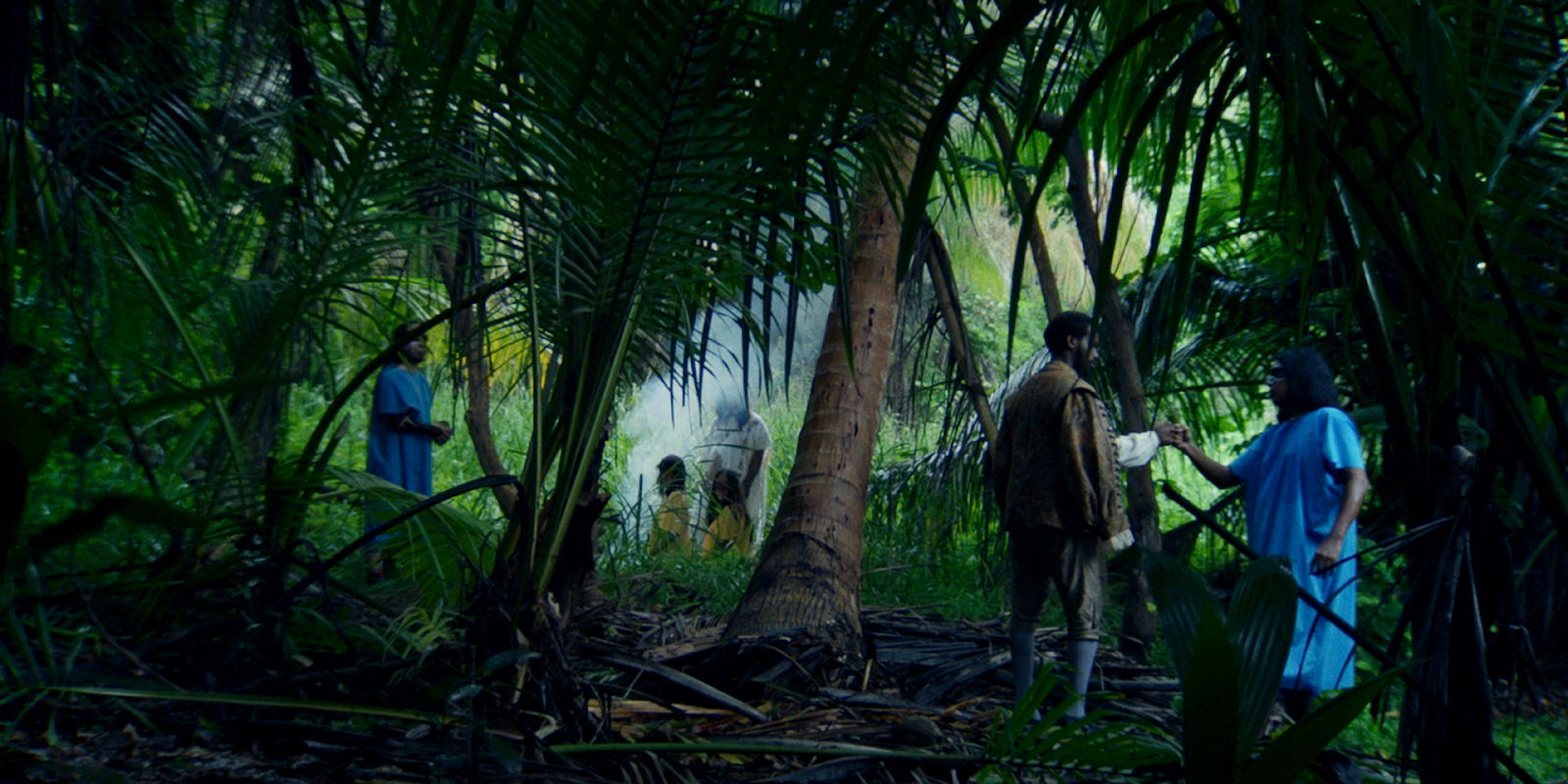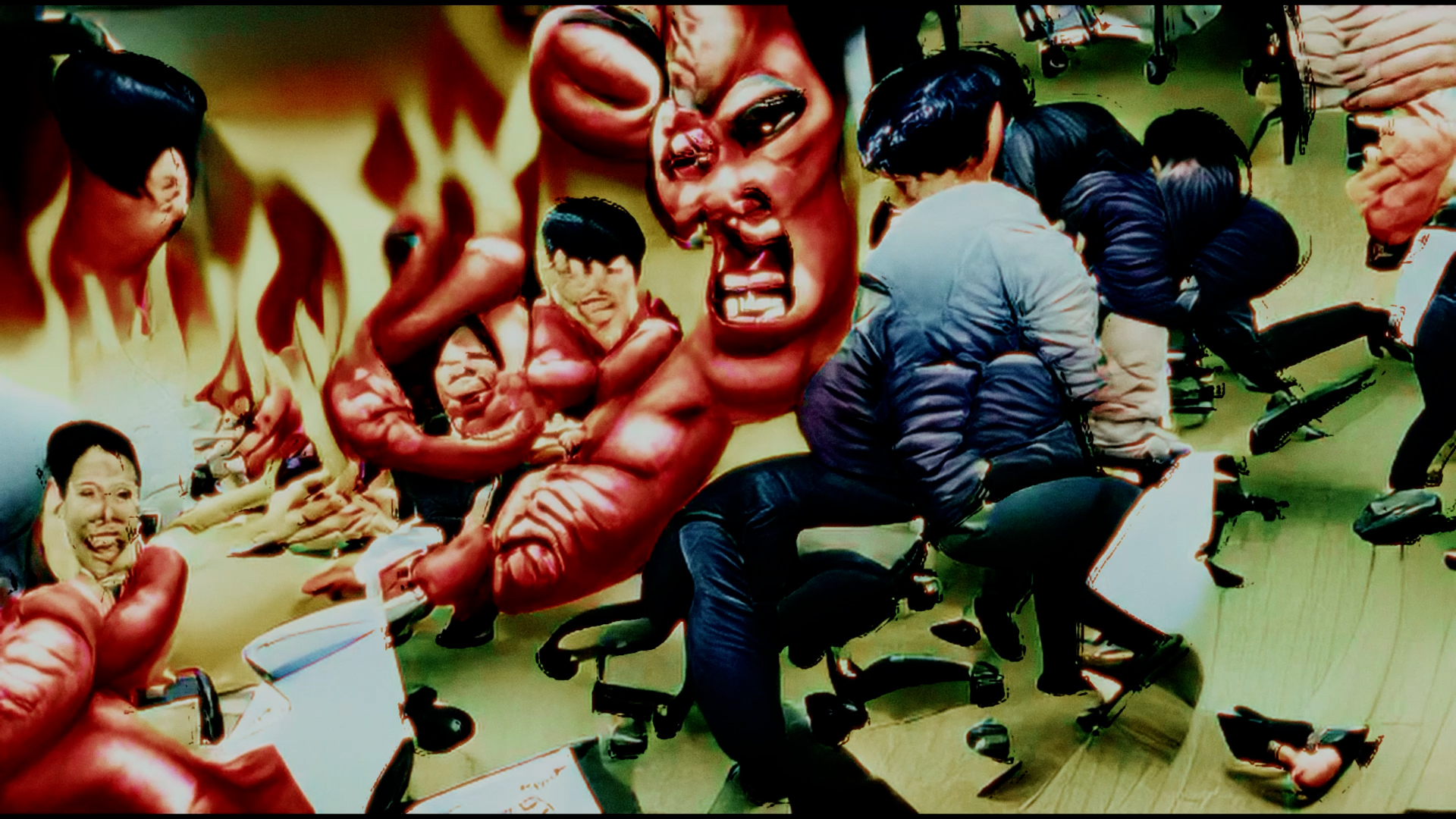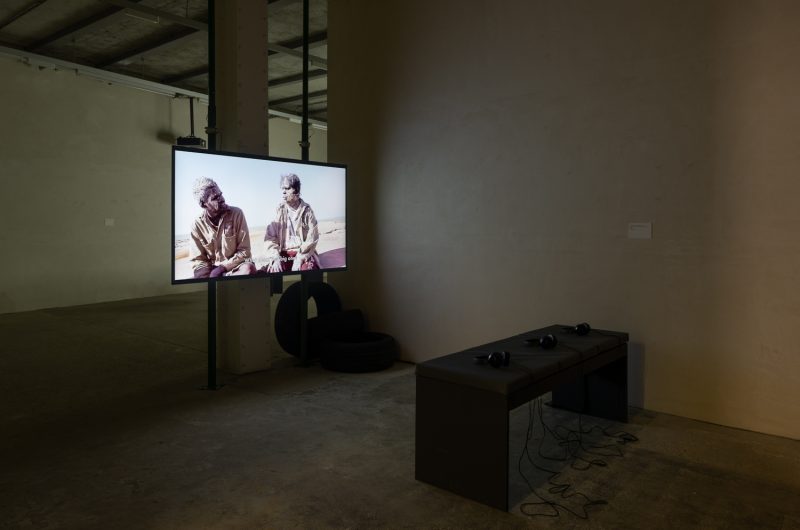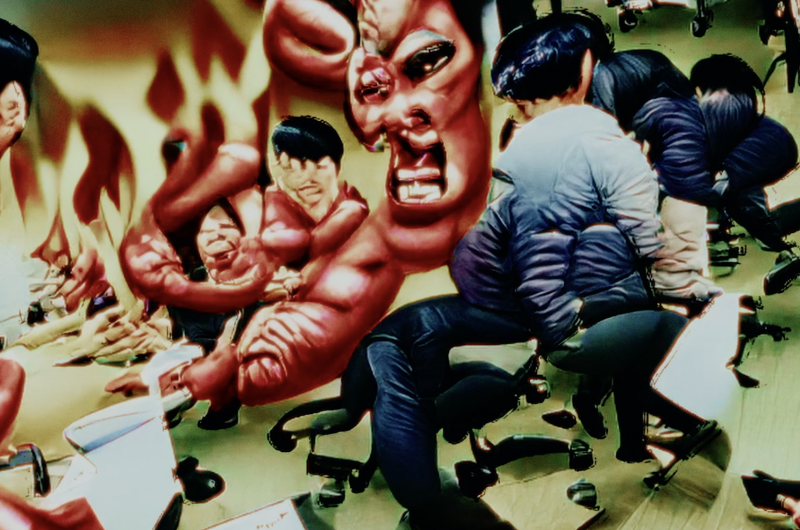The Vampire, The Ghost, and the Zombie
Join us for the screening night featuring films that critique colonial legacies, capitalism, and environmental degradation through the genre of horror. Films will be screened by Adam Khalil, Bayley Sweitzer and Oba, Riar Rizaldi, and the Karrabing Film Collective.
Please note: the films contain horror images, and jump scare moments.
Exhibitions available to view 6–7pm
(excluding the film Mermaids, or Aidan in Wonderland by Karrabing Film Collective)
Screening programme commences 7pm
Nosferasta: First Bite (2021)
Adam Khalil, Bayley Sweitzer and Oba,
32 min
Nosferasta: First Bite is the first iteration of a Rastafarian vampire film starring and co-written by Oba, a Trinidadian artist and musician based in Brooklyn. The film reimagines Oba’s origin story; a nightmarish chronicle of colonial encounters dating back to 1492. Having been shipped as cargo from West Africa to the Caribbean, Oba is seduced and bitten by the vampire Christopher Columbus, ensuring an undying allegiance to the colonial project. Together this unlikely duo spread vampirism across the Western Hemisphere, pulling the strings of ‘New World’ geopolitics until Oba encounters Rastafarianism, an anticolonial religion, which, with a little help from the Devil’s lettuce (cannibis), enables him to finally break Columbus’ spell.
Notes from Gog Magog (2022)
Riar Rizaldi
19 min
Notes from Gog Magog is an exploration of the interconnection between ghost stories, tech company culture in South Korea, and the economy of logistics in Indonesia told through a notebook/premake film and dossier of an unmade techno-horror feature-length film set in between port in Jakarta and an unnamed employee assistance programme office in Seoul.
The Family and the Zombie (2021)
Karrabing Film Collective
30 min
The Family (A Zombie Movie) opens in a seemingly idyllic landscape where the future ancestors of Karrabing are digging yams as their children play games in the bush. Then a monstrous form slowly from behind a log, its skin crusted with an oozing white substance, extending a clawed arm toward the children. Alternating between contemporary time in which Karrabing members struggle to maintain their physical, ethical and ceremonial connections to their remote ancestral lands and a future populated by ancestral beings living in the aftermath of toxic capitalism and white zombies, The Family mixes comedy, tragedy and realism to reflect on the practices of the present and their impact on worlds to come.
Read more…
BIOGRAPHIES
Adam Khalil is an artist and filmmaker from the Ojibway tribe; and Bayley Sweitzer is a filmmaker from Southern Vermont. Khalil and Sweitzer’s acclaimed debut feature film, Empty Metal (2018), is a science-fiction political thriller set against a backdrop of racialised police brutality and mass surveillance, delving into anti-colonial politics by weaving together indigenous histories and speculative imagination with a subcultural sensibility. Recent screenings include the Museum of Modern Art (2016), Anthology Film Archives (2019), and eflux (2018) in New York; the Walker Arts Center, Minneapolis (2019); LACMA, Los Angeles (2019) and Tate Modern, London (2019). Their works have also featured at the Whitney Biennial, Toronto Biennial (both 2019) and Sundance Film Festival (2018).
Oba is a multi-disciplinary artist, chef and actor born in Port-of-Spain, Trinidad. His paintings, sculptures and t-shirts have been featured at Motel Gallery and Rumplestiltskin, Brooklyn. He was lead singer of the avant-noise supergroup Dead Companionship from 2016-2018. He starred as King Alpha in Adam Khalil and Bayley Sweitzer’s 2018 film Empty Metal. Oba’s world-class corn soup has been slurped at the legendary Club Temptation in Flatbush, as well as fine establishments across the world.
Riar Rizaldi works as an artist and filmmaker. He works predominantly with the medium of moving images and sound, both in the black-box of cinema settings as well spatial presentation as installation. His artistic practice focuses mostly on the relationship between capital and technology, labour and nature, worldviews, genre cinema, and the possibility of theoretical fiction. His works have been shown at various international film festivals (including Locarno, IFFR, FID Marseille, Viennale, BFI London, Cinema du Reel, Vancouver, etc) as well as Centre Pompidou Paris, NTT InterCommunication Center Tokyo, Taipei Biennial, Istanbul Biennial, Venice Architecture Biennale, Biennale Jogja, National Gallery of Indonesia, and other venues and institutions. In addition, solo exhibitions and focus program of his works had been held at Batalha Centro de Cinema, Porto and Centre de la photographie Genève amongst others.
Karrabing Film Collective (est. 2012, Australia) is a grassroots Indigenous media group consisting of over thirty members. They approach filmmaking as a mode of self-organisation and a means of investigating contemporary social conditions of inequality. Screenings and publications allow the Karrabing to develop a local artistic language and allow audiences to understand new forms of collective Indigenous agency. Their films represent their lives, create bonds with their land and intervene in global images of Indigeneity. Their films and installations have been exhibited at MoMA-PS1, New York; Secession, Vienna; Haus der Kunst Munich, Contour Biennale, Mechelen, Belgium; Berlinale Forum Expanded; Hallucinations, Athens at documenta 14; Sydney Biennale; vdrome.org; e-flux supercommunity at the Venice Biennale; Doc’s Kingdom, Lisbon; and Wexner Center for the Arts, Columbus, Ohio, among others. They are the recipients of the Visible Award (2015), Eye Film Prize, Eye Filmmuseum (2022) amongst others.
Read Less...



